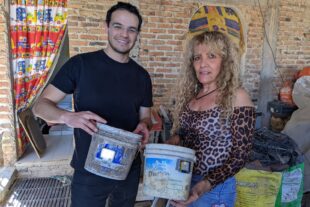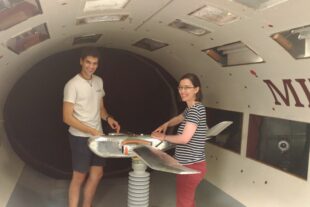News & Stories
News & Stories Filtered BY
Filtered by
Germany
The City Science Network empowers local communities to collaborate globally
The City Science group at the MIT Media Lab, directed by Principal Research Scientist Kent Larson, launched the City Science Network nine years ago to create sister labs around the world that could share data, code, design ideas, and systems for analysis, simulation, and community engagement. Today, 10 affiliated City Science labs are operating in […]

Q&A: A high-tech take on Wagner’s “Parsifal” opera
The world-famous Bayreuth Festival in Germany, annually centered around the works of composer Richard Wagner, launched this summer on July 25 with a production that has been making headlines. Director Jay Scheib, an MIT faculty member, has created a version of Wagner’s celebrated opera “Parsifal” that is set in an apocalyptic future (rather than the […]

Homing in on longer-lasting perovskite solar cells
Materials called perovskites are widely heralded as a likely replacement for silicon as the material of choice for solar cells, but their greatest drawback is their tendency to degrade relatively rapidly. Over recent years, the usable lifetime of perovskite-based cells has gradually improved from minutes to months, but it still lags far behind the decades […]

Faculty seed projects grow into pandemic research opportunities
Global partnerships are a fundamental component of research at MIT — even during this time of suspended travel. MIT International Science and Technology Initiatives (MISTI) supports those connections via MISTI Global Seed Funds (GSF). GSF enables participating faculty teams to collaborate with international peers, either at MIT or abroad, to develop and launch joint research projects. MISTI […]

When culture clashes with Covid-19
In China, wearing masks during an epidemic is a readily accepted practice — unlike the situation in, say, the United States or some European countries, where the issue of mask-wearing is revealing civic and political fault lines. To what extent are these differences attributable to the “culture” of each country? And how much have widespread […]